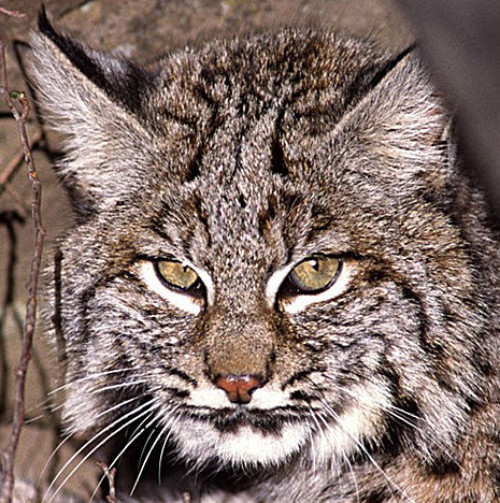
With Bobcat Protections, California Continues to Lead (Op-Ed)

Get the world’s most fascinating discoveries delivered straight to your inbox.
You are now subscribed
Your newsletter sign-up was successful
Want to add more newsletters?

Delivered Daily
Daily Newsletter
Sign up for the latest discoveries, groundbreaking research and fascinating breakthroughs that impact you and the wider world direct to your inbox.

Once a week
Life's Little Mysteries
Feed your curiosity with an exclusive mystery every week, solved with science and delivered direct to your inbox before it's seen anywhere else.

Once a week
How It Works
Sign up to our free science & technology newsletter for your weekly fix of fascinating articles, quick quizzes, amazing images, and more

Delivered daily
Space.com Newsletter
Breaking space news, the latest updates on rocket launches, skywatching events and more!

Once a month
Watch This Space
Sign up to our monthly entertainment newsletter to keep up with all our coverage of the latest sci-fi and space movies, tv shows, games and books.

Once a week
Night Sky This Week
Discover this week's must-see night sky events, moon phases, and stunning astrophotos. Sign up for our skywatching newsletter and explore the universe with us!
Join the club
Get full access to premium articles, exclusive features and a growing list of member rewards.
Wayne Pacelle is the president and chief executive officer of The Humane Society of the United States (HSUS). This Op-Ed is adapted from a post on the blog A Humane Nation, where the content ran before appearing in LiveScience's Expert Voices: Op-Ed & Insights.
Recently, California has been in the spotlight for efforts to reform wildlife management and discard archaic practices, with Gov. Jerry Brown recently signing wildlife-protection bills into law.
For decades, The HSUS and its allies have campaigned vigorously to stop abusive trophy-hunting and commercial trapping practices — this year alone, we are leading the charge to stop the trophy hunting of wolves in Michigan and end the unsporting and inhumane practices of bear baiting, hounding and trapping in Maine.
On Oct. 2, Gov. Brown signed legislation to make California the first state in the nation to halt the use of lead ammunition in hunting. The HSUS led the fight, along with Audubon California and Defenders of Wildlife, besting the National Rifle Association, the National Shooting Sports Foundation and other hunting-rights lobby groups that called for the status quo and the continued incidental poisoning of countless birds and mammals, including endangered California condors, in the Golden State. Gov. Brown also signed legislation, on the same day, to forbid the trapping of bobcats around Joshua Tree National Park and other national parks and wildlife refuges — a second major wildlife victory.
The bobcat bill — Assembly Bill 1213, authored by Assemblymember Richard Bloom (D-Santa Monica) — was initiated by residents around Joshua Tree National Park. Those residents realized that commercial trappers were lining up on the park's boundaries and literally luring bobcats out of the park, where they are protected, and into cage traps. Trappers kill bobcats for their fur, which sells for as much as $700 a pelt on the international market — mainly in China, Greece and Russia. Los Angeles Times reporter Louis Sahagun broke the story earlier this year, featuring local residents who were appalled by the exploitation of the beautiful cats.
This issue has special meaning for me. In 1994, I worked hard lobbying to pass the California Desert Protection Act, which made Joshua Tree a national park and expanded the boundaries of the former national monument. Then in 1998, I helped lead Proposition 4, a California ballot initiative to ban the use of body-gripping traps to kill fur-bearing animals.
With those two policy gains, who would have thought that bobcats living mainly in Joshua Tree would still be at risk?
Get the world’s most fascinating discoveries delivered straight to your inbox.
But animal exploiters are nothing if not resourceful, requiring constant vigilance on the part of animal advocates. So now it was our turn again to cut them off at the pass.
California already protected bobcats from steel-jawed leg-hold traps and snares; it banned trophy hunting of another big cat — the mountain lion; and it banned chasing bears and bobcats with packs of dogs — a gain The HSUS and its allies secured last year. It was time for the state to stop unscrupulous trappers from killing park-residing animals for nothing more than their pelts.
Pacelle's most recent Op-Ed was "As Constrictor Attacks Continue, Look to the Snake Trade" This article was adapted from "Roaring for Bobcats," which first appeared on the HSUS blog A Humane Nation. The views expressed are those of the author and do not necessarily reflect the views of the publisher. This version of the article was originally published on LiveScience.
 Live Science Plus
Live Science Plus











